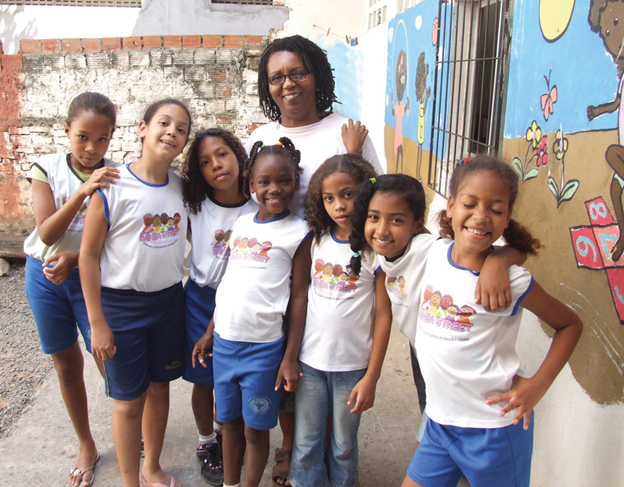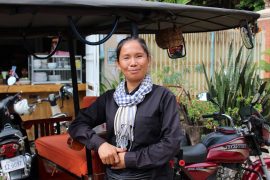By Goodnews Buekor
Born and bred in one of the popular communities of Salvador, Brazil, Rita Conceicao was exposed to the harsh realities of violence, lack, and death of loved ones at a tender age. She likewise knew she wanted something better.
“My mother had lots of children and hard life. She died young, so I brought up my brothers and sisters. I knew I didn’t want that life kind of life for myself or my children.”
Her determination wouldn’t let her. Every day, Rita would travel for more than an hour using public transport to a place she could learn how to read and write. She had a flair for arts and took up photography. As a teenager, Rita would take daring pictures of protests against the then-ruling Brazilian military government.
“I didn’t think of it as black or gender consciousness,” she says. “People never talked about racism then.” However, she was concerned about how women like herself worked like maids for peanuts; sadly, it was the only available job, except prostitution.
Rita wanted to go to university, an almost impossible goal for someone with such a humble beginning. She attempted the university’s entrance exam three times and failed.
She tried again for the fourth time and luck shined on her part. Rita got admission into the most prestigious university in her state, the Federal University of State, where she studied. Her nonprofit organisation, ‘BAHIA STREET’, was born during this time.
Listening to the pain of the people in the community, helped her to set in structures for change. Rita set up an education program for the girls that granted them access to university and integrated race and gender consciousness into the Bahia Street Classes. She started a lunch program for the girls, who were often starving. She began enlightening the girls about reproduction, sexual violence, and self-esteem.
“As I was growing up,” she says, “the girls in my family were never valued as much as the boys. This still exists in our society, but I say to the girls that their roots are their reality. I pass on to them the importance of ethics, self-respect and women’s solidarity. They see in me the difference it makes — what choices you make in your life — and the strength it takes. If women are to become equal, these qualities and knowledge are vital.”
The school started by renting or borrowing classrooms, but after some years, Bahia Street was able to purchase a building, a building they renovated.
The five-story Bahia Street Center is complete, with classrooms, a kitchen, library, computer lab and much more. In addition to education and support programs for the girls, Bahia Street now offers classes for the girls’ caregivers and other community members. It has become a haven for the girls and a community gathering place.
“We teach the girls to take care of others in their lives. Women take care of the children, and in that is the future of our society. The work we do is a form of black resistance. We are working for the survival of the black people in Bahia, showing that as black women, we can have equality and shape the future. In Bahia Street, we are giving girls a chance my mother never had,” she said.
Rita remains humbled by her outstanding achievement.
“In Bahia Street,” she says, “I really found my identity. Managing to create Bahia Street continues to be an amazing process, and I have learned a consciousness myself through this process.”
Recently, Bahia Street graduate Daza graduated from the university and obtained a journalism degree. In Daza, shantytown occupants have a voice they never had before. And the long-term Bahia Street vision of promoting equality for shantytown women is becoming a reality.
Rita laughs with a smile that, in its brightness, knows suffering, love, and strength. “And the work continues. That is the way for all of us. If we are to make a better world, the work is what we do.”





Comments are closed.